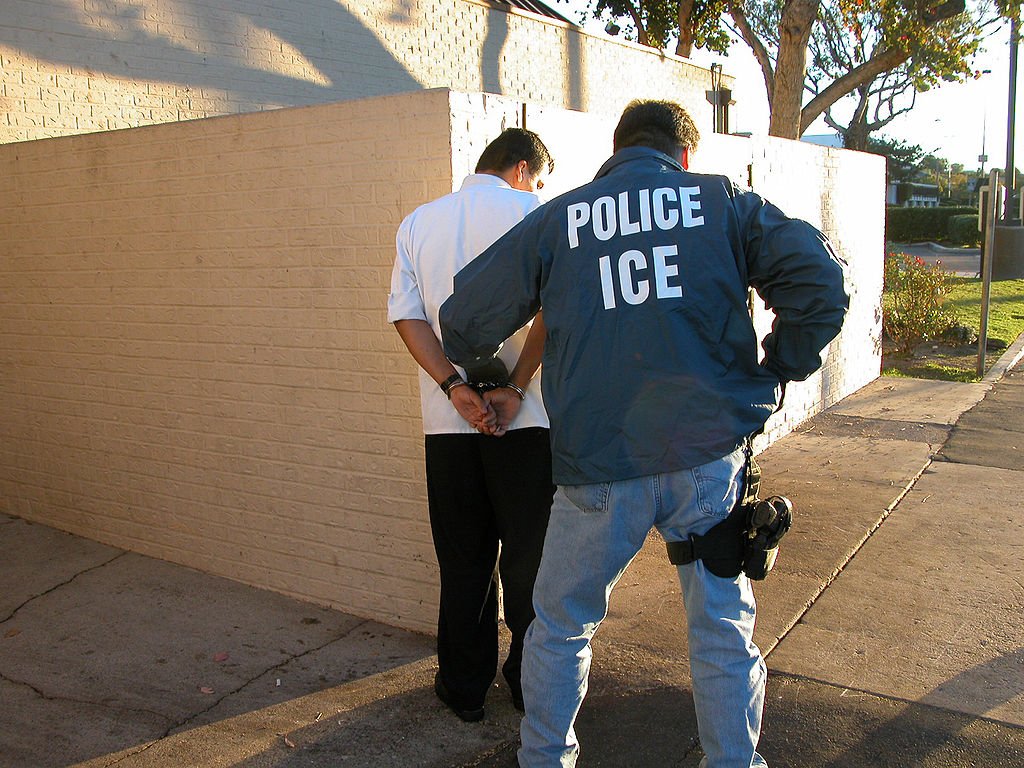 Parler
Parler Gab
Gab
- Juan Espinoza Martinez, a Mexican national and Latin Kings gang member, was arrested for placing a bounty on U.S. Border Patrol Chief Gregory Bovino.
- Martinez faces federal charges for soliciting the murder of a senior law enforcement official.
- The hit was allegedly motivated by protests against ICE operations and the Trump administration's immigration policies.
- Martinez entered the U.S. at an unknown date and has a history of criminal activity.
- The arrest highlights the rising tensions and violence against law enforcement in the context of immigration enforcement.
The incident and investigation: A confirmed hit on a senior law enforcement official
On October 3, a confidential source alerted law enforcement that a "hit" had been placed on Chief Bovino. The U.S. Immigration and Customs Enforcement (ICE) Homeland Security Investigations (HSI) quickly identified Martinez as the individual responsible and arrested him in Burr Ridge, Illinois, on October 6, 2025. Evidence gathered includes a Snapchat screenshot where a user named "Juan" offered a $2,000 bounty for information and a $10,000 reward for anyone who could "take him down." A subsequent message referenced the Latin Kings, confirming the gang's involvement.Background on Juan Espinoza Martinez: A history of criminal activity and illegal entry
Martinez, a 54-year-old Mexican national, has a history of criminal activity, including felony hit-and-run, domestic abuse and property damage. He has been deported multiple times but has re-entered the U.S. illegally at least nine times between 1998 and 2005. His status as an illegal immigrant and his criminal record make him a high-priority target for deportation, adding a layer of complexity to the case.Rising tensions over immigration enforcement: Chicago is the battleground for immigration policy
Chicago has emerged as a key battleground in the national debate over immigration policy. The city has seen numerous protests against ICE raids and federal deportation efforts, with activists, community groups and local politicians often clashing with authorities. Chief Bovino, who has been at the forefront of these operations, has become a figurehead for the Trump administration's aggressive stance on immigration enforcement. The tensions have escalated to the point where law enforcement officials are now facing direct threats to their lives.Official responses: Condemnation and vow to protect law enforcement
The arrest of Martinez has been met with strong condemnation from federal officials. Deputy Attorney General Todd Blanche emphasized that placing a bounty on a federal officer is an attack on the rule of law and the safety of all Americans. United States Attorney Andrew S. Boutros for the Northern District of Illinois echoed these sentiments, vowing to hold Martinez accountable for his actions. HSI Chicago Special Agent-in-Charge Matthew Scarpino highlighted the agency's commitment to breaking apart violent gangs like the Latin Kings that threaten both law enforcement and community safety.A call to action for enhanced security: Protecting those who protect us
The arrest of Juan Espinoza Martinez serves as a stark reminder of the dangers faced by law enforcement officials in the line of duty, particularly in the context of immigration enforcement. As the nation continues to grapple with issues of border security and the treatment of undocumented immigrants, it is crucial that we protect those who safeguard our communities. The case of Martinez highlights the need for enhanced security measures and a renewed commitment to ensuring the safety of all law enforcement personnel. The rule of law must be upheld, and those who threaten it must be held accountable. Sources for this article include: TheNationalPulse.com Newsweek.com DHS.govEU, U.S. band together to challenge China’s control over rare earth metals
By Gregory Van Dyke // Share
Apple & Google to comply with Texas age verification law—but warn of privacy trade‑offs
By Patrick Lewis // Share
Governments continue to obscure COVID-19 vaccine data amid rising concerns over excess deaths
By patricklewis // Share
Tech giant Microsoft backs EXTINCTION with its support of carbon capture programs
By ramontomeydw // Share
Germany to resume arms exports to Israel despite repeated ceasefire violations
By isabelle // Share










